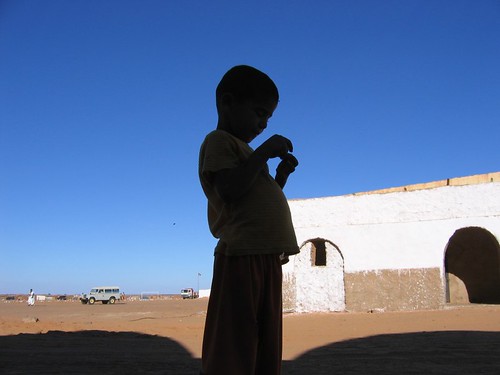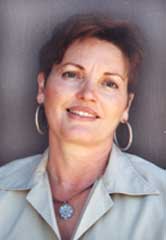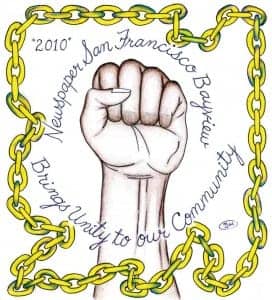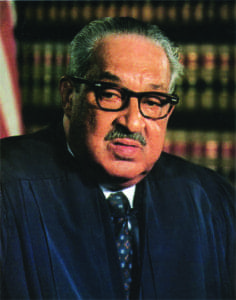Sometimes I think I'm the only person in North America who is interested in what is happening in Saharawi (Western Sahara). Did anyone out there know that this week Moroccan security forces attacked a peaceful protest and left several injured? Did you know that sever Saharawi human rights activists have been held in custody without any proceedings since last October? Do you care?

The first two articles below are from the Sahara Press Service. The third is from Human Rights Watch.
Read them and pass them along. It is way past time that the talking stop and the oppression of the Saharawi People by Morocco be done with once and for all.
Saharawi Workers Condemn Moroccan Repression
 Al Ayun (Occupied Territories), August 5, 2010 (SPS) - FOS Bukraa pensioners and workers and their families condemned Wednesday the violent repression by the Moroccan security forces against the peaceful protest that they organized Monday in the occupied city of Al Ayun, where dozens of Sahrawi demonstrators were injured. Al Ayun (Occupied Territories), August 5, 2010 (SPS) - FOS Bukraa pensioners and workers and their families condemned Wednesday the violent repression by the Moroccan security forces against the peaceful protest that they organized Monday in the occupied city of Al Ayun, where dozens of Sahrawi demonstrators were injured.The representative of FOS Bukraa pensioners and workers, Ahmed Moussa, confirmed to the Collective of Sahrawi Human Rights Defenders (CODESA) that the peaceful protest organized by Saharawi workers was a form of struggle to defend and assert the rights seized by the Moroccan State, pointing out that the Sahrawi workers have vowed to continue struggle until they fully restore their rights. The Saharawi trade unionist indicated that the presence of various Moroccan forces of repression prevented the Sahrawi citizens from their right to a peaceful demonstration to protest against the systematic policy for confiscating their rights, acquired during the Spanish colonialism era. He called on the concerned international bodies and organizations to immediately intercede to realize the demands of the FOS Bukraa company pensioners and workers and other social groups, which have become alien in their own homeland of Western Sahara and do not benefit from its natural resources, which subjected to pillaging by the Moroccan State. The FOS Bukraa company pensioners and workers, in a statement, signified that the Moroccan state has always resorted deliberately and consistently to seize the rights and privileges of these workers in a way contrary to the law and international treaties and conventions. "The humiliating exploitation suffered by the working class since 1975 and denial of rights and spoiling them, including for example - the health services, promotion, obtaining the original salaries cut by the Moroccan state to more than half - fall within the purpose of systematic sequence of confiscation of such rights and arbitrarily destroying them," The Statement added. (SPS) Union of Saharawi Lawyers Demands Release For Saharawi Political Prisoners Shaheed Al Hafed (Refugee Camps), August 5, 2010 (SPS) - Union of Saharawi Lawyers called Tuesday on the United Nations to urgently intercede with the Moroccan authorities for the immediate and unconditional release of Sahrawi human rights defenders Ali Salem Tamek, Brahim Dahan and Hammadi Nassiri and all Saharawi political prisoners in Moroccan prisons. They were among seven Sahrawi activists whom Moroccan police arrested immediately upon their return from visiting Sahrawi refugee camps, and awaiting martial trial in prison of Sale, since October. In a letter to the UN Secretary General, Mr. Ban Ki-moon, Union of Saharawi Lawyers appealed to justice and equity loving associations, parties, parliaments, media forums, personalities and the whole international community to apply pressure on Morocco to comply with international legitimacy and respect human rights in Western Sahara. As well as the need to establish a UN mechanism through its mission for the referendum (MINURSO) to provide international protection to Sahrawi citizens against the terror of the Moroccan state through colonial repressive methods. It also strongly condemned the suppression by the Moroccan authorities of a peaceful protest Monday in the occupied city of Al Ayun, with violence and brutality against defenseless Saharawi citizens of Fos Boukraa company pensioners and workers, which left many seriously injured including women and elderly. (SPS)  Morocco: Release or Try Sahrawi Activists Held 10 Months Seven Facing Charges in Military Court After Visiting Tindouf Refugee Camps(New York) - Moroccan authorities should release three well-known Sahrawi activists held since October 8, 2009, on charges of "harming state security," or provide them with a prompt and transparent trial, Human Rights Watch said today. If Morocco insists on going forward with such a trial, it should be transferred from the military to a civilian court, Human Rights Watch said. Ali Salem Tamek, Brahim Dahane, and Ahmed Naciri are among seven Sahrawi activists who Moroccan police arrested immediately upon their return from visiting Sahrawi refugee camps in Tindouf, Algeria. Moroccan authorities have provisionally released the other four activists facing the same accusations, Degja Lachgar, Yahdih Etarrouzi, Rachid Sghaier, and Saleh Lebaihi. Unlike previous low-profile family visits by Sahrawis from the disputed, Moroccan-controlled Western Sahara to the refugee camps, this delegation openly met there with officials of the Polisario, the Sahrawi independence movement that runs a government-in-exile and administers the camps. "In the past Morocco has unjustly imprisoned these and many other Sahrawis for their nonviolent political and human rights activism," said Sarah Leah Whitson, Middle East and North Africa director at Human Rights Watch. "And after almost a year behind bars, the world is still waiting for evidence that would justify their detention this time around." During the activists' two-week visit to Tindouf, some Moroccan political parties and newspapers, including the organ of the prime minister's party, denounced the seven as "traitors." After their arrests, King Mohammed VI gave a speech indicating that Morocco would take a harder line toward Sahrawis who advocate self-determination for Western Sahara, which Morocco claims as part of its territory. The case against the seven remains with the investigating judge at the Rabat military court, who has yet to complete the investigation and decide whether to refer the defendants to trial, and on what formal charges. The investigating judge has not questioned them since December. Under Moroccan law, pre-trial detention is limited to two months, but the court can renew the two-month period five times, for a maximum of one year. According to a report issued on October 8 by the state news agency, Maghreb Arabe Presse (MAP), the prosecutor ordered the seven arrested because of their meetings with "bodies opposing Morocco," a probable reference to their meetings with Polisario Front officials, including, the president in exile Mohamed Abdelaziz. The police also reportedly questioned the defendants about meetings with Algerian officials. The MAP report said the seven are under investigation on charges of "contacts with parties hostile to the kingdom," "undermining Morocco's internal and external security," "undermining citizens' loyalty to the kingdom", "undermining Morocco's diplomacy," and "receiving donations from hostile foreign parties for the purpose of organizing hostile demonstrations and sowing confusion." The investigating judge of the civilian court referred the case to military court because Morocco's Code of Military Justice in Article 4 allows military trials for civilians when the charges include "undermining external state security." The case is number 2837/2546/09 before the first trial chamber of the military court in Rabat. To date, Moroccan authorities have released no evidence to substantiate the accusations against the seven. Interviewed since their provisional release on May 18, Etarrouzi and Sghaier said their review of the case file apparently showed no evidence to substantiate the charges but, rather, consisted of contemporary broadcast and print media reports about the men being received by Polisario Front officials. The activists said in a statement on March 18, that their visit to Tindouf was "for humanitarian and purely human rights reasons." They have denied accepting money to fund or stir up unrest among Sahrawis in Morocco or Western Sahara. "The longer this case drags on the more obvious is the Moroccan government's repression toward those who peacefully defy its position on Western Sahara," said Whitson. The six men and one woman are all advocates of self-determination for Western Sahara, a vast disputed territory that Morocco has administered de facto since seizing control of it in 1975, after Spain, the colonial power, withdrew. The Polisario Front favors a popular vote on self-determination, including the option of full independence, while Morocco proposes a measure of autonomy for the region but rejects independence as an option. Morocco and the Polisario, which Algeria supports, have engaged in fitful and so-far fruitless negotiations. Morocco considers peaceful advocacy of independence, or even of a referendum where independence is one option, as an attack on its "territorial integrity," punishable by law. Tamek, Dahane, Etarrouzi, Sghaier, and Naciri have all been previously imprisoned by Morocco - along with hundreds of other Sahrawis - for their pro-independence activities. Dahane and Lachgar are both former victims of forcible disappearance. Moroccan authorities arrested the seven on October 8 at Casablanca's Mohammed V airport upon their return from the visit to the refugee camps. They spent eight days at the headquarters of the Judiciary Police in Casablanca, four of them blindfolded and handcuffed in individual cells, according to Sghaier and Etarrouzi. The Moroccan authorities did not inform the detainees' relatives of their arrest until the evening of 12 October, according to Sghaier and Etarrouzi, in contravention of Article 67 of the Moroccan Code of Criminal Procedure, which stipulates that the judicial police must notify the family of the suspects as soon as it decides to place them in pre-arraignment detention (garde à vue). The judge to whom they were presented on October 15 remanded them to Salé Prison. On November 4, after the seven had been in detention for four weeks, King Mohammed VI gave a speech that signaled a hard line on Sahrawi activists, declaring: Now is the time for all government authorities concerned to strive doubly hard, show great resolve and vigilance, enforce the law and deal vigorously with any infringement of the nation's sovereignty, security, stability and public order....Let me clearly say there is no more room for ambiguity or deceit: either a person is Moroccan, or is not....One is either a patriot, or a traitor....One cannot enjoy the rights and privileges of citizenship, only to abuse them and conspire with the enemies of the homeland... On January 28, Moroccan authorities provisionally released Lachgar, the only woman in the group, following reports that her health was poor. On March 18, the remaining six detainees started a hunger strike that lasted 41 days to protest their continuing detention without trial. On May 18, authorities provisionally released Etarrouzi and Lebeihi, both of El-Ayoun, and Sghaier, of Dakhla, but did not end the criminal investigation against them. Tamek, Dahane, and Naciri remain in Salé Prison. All three are active in Sahrawi human rights organizations. Tamek, a resident of El Ayoun, is vice-president of the Collective of Sahrawi Human Rights Defenders (CODESA). Dahane, of El-Ayoun, is president of the Sahrawi Association of Victims of Grave Human Rights Violations (ASVDH). Naciri is vice-president of the Smara-based Committee for the Defense of Human Rights. Moroccan authorities have refused to grant legal recognition to CODESA and the ASVDH. The International Covenant on Civil and Political Rights, ratified by Morocco in 1979, states that anyone detained on a criminal charge is entitled to trial within a reasonable time or to release. The Human Rights Committee, which interprets this treaty, has stated the right to a fair trial under Article 14 of the Covenant means that military courts should only exceptionally, if ever, try civilians. It has stated, "[t]hat the State party must demonstrate, with regard to the specific class of individuals at issue, that the regular civilian courts are unable to undertake the trials, that other alternative forms of special or high-security civilian courts are inadequate to the task and that recourse to military courts is unavoidable. The State party must further demonstrate how military courts ensure the full protection of the rights of the accused pursuant to article 14 [...]." The committee has also noted that, "Nor does the mere invocation of domestic legal provisions for the trial by military court of certain categories of serious offences constitute an argument under the Covenant in support of recourse to such tribunals. " In Morocco, the verdict of a military court is not subject to appeal; the only available level of judicial review is the court of cassation. "If Morocco wants to prove these seven people did more than advocate self-determination and meet with Polisario, they should bring the case quickly to trial," said Whitson. "The prolonged detention of these men without charge is unjust and cruel." |












